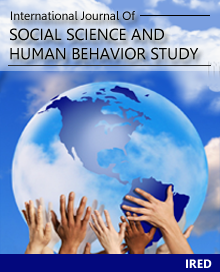The Relationships Between Socio-Demographic Factors, Availability of Hand Washing Facilities, Perceived Benefits, Perceived Self-Efficacy and Hand Washing Behavior among Elementary Schools Students in Indonesia
Author(s) : KANOKWAN WETASIN , NAZLIANSYAH, SUSHEEWAWICHAIKULL
 Abstract
Abstract
Background: Hand washing is the most effective method of preventing the transmission disease and also a key factor of reducing transmission of acute respiratory infection and diarrhea in a community setting. The objective of this study was to identify relationship between socio-demographic factors, availability of hand washing facilities, perceived benefit, and perceived self-efficacy with hand washing behavior among sixth grade students of public elementary school in Belitung district, Indonesia. A cross-sectional research study was employed for describing the relationship. A total of 309 sixth grade students, were participated in this study. Data were analyzed using descriptive statistics and Chi-square test. The results of this study revealed that 71.8% of the participants were not hand washing properly. The results of this study also revealed that gender, parents’ occupation, role of students at home, availability of clean water, soap, and hand washing stands were not significantly related with hand washing behavior. However, perceived benefits of hand washing (X2 = 0.223, p .01) and perceived self-efficacy of hand washing (X2= 0.141, p .05) were significantly related with hand washing behavior. Based on these findings, health care providers in rural area of Indonesia should be strengthening health promotion regarding hand washing behavior by involving teachers and students that may influence on the success of hand washing program in the schools setting.
 Full Paper PDF
Full Paper PDF
